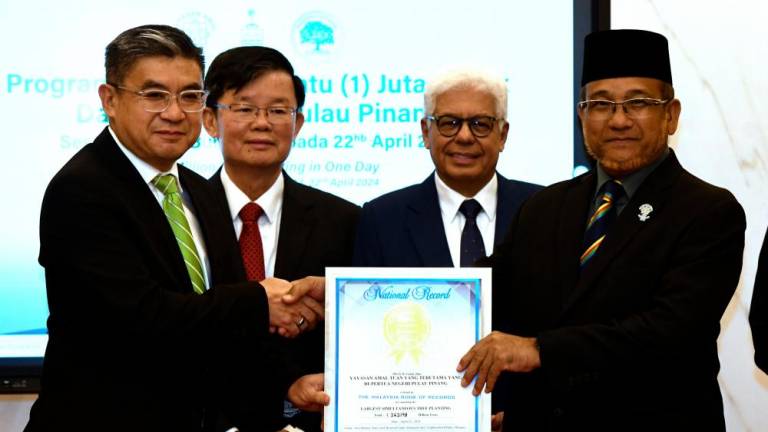PUTRAJAYA: The National Human Resource Policy Framework 2024-2030 is expected to be completed and announced in May, said Human Resources Minister Steven Sim (pix).
He said there is a need to address the existing gaps in the current human resource policy, thus the Ministry of Human Resources (KESUMA) through various engagement sessions is obtaining input from stakeholders to develop a comprehensive framework.
Speaking at a press conference after a town hall session on the framework here today, Sim said among the core issues addressed is empowering women in the labour market to achieve a 60 per cent female labour participation rate, the ageing society agenda and methods to penetrate new job markets including green, digital and artificial intelligence (AI) industries.
“All of these may have gaps in the current policy documents, so we want to address or resolve them through this framework,“ he said.
The engagement session was attended by more than 1,000 stakeholders including the public sector, private sector, employers’ representatives, workers union representatives and non-governmental organisations (NGOs) representing youth and persons with disabilities.
Also present was Deputy Human Resources Minister Datuk Seri Abdul Rahman Mohamad.
According to Sim, the ministry also welcomes input from Malaysians to develop the framework, which can be submitted via feedback portals under KESUMA starting today until April 18.
“After April 18, the ministry will gather all findings and feedback for consideration ... those deemed suitable will be included in the National Human Resource Policy Framework,“ he said.
During the engagement session, he said, various issues were raised by stakeholders, for example, employer representatives wanted more competitive business costs and a reduction in bureaucratic processes.
“On the other hand, in the healthcare sector, they want to see better employee benefits, better salaries, or more suitable workplace environments, and at the NGO level, we received feedback on the recognition of the care economy,“ he said. -Bernama













